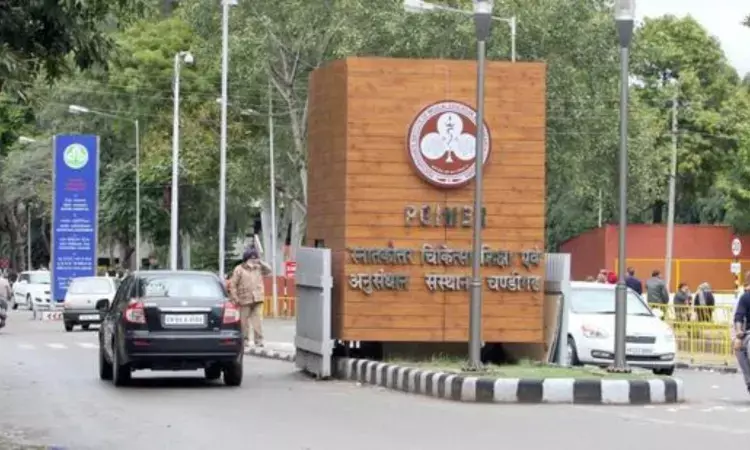- Home
- Medical news & Guidelines
- Anesthesiology
- Cardiology and CTVS
- Critical Care
- Dentistry
- Dermatology
- Diabetes and Endocrinology
- ENT
- Gastroenterology
- Medicine
- Nephrology
- Neurology
- Obstretics-Gynaecology
- Oncology
- Ophthalmology
- Orthopaedics
- Pediatrics-Neonatology
- Psychiatry
- Pulmonology
- Radiology
- Surgery
- Urology
- Laboratory Medicine
- Diet
- Nursing
- Paramedical
- Physiotherapy
- Health news
- Fact Check
- Bone Health Fact Check
- Brain Health Fact Check
- Cancer Related Fact Check
- Child Care Fact Check
- Dental and oral health fact check
- Diabetes and metabolic health fact check
- Diet and Nutrition Fact Check
- Eye and ENT Care Fact Check
- Fitness fact check
- Gut health fact check
- Heart health fact check
- Kidney health fact check
- Medical education fact check
- Men's health fact check
- Respiratory fact check
- Skin and hair care fact check
- Vaccine and Immunization fact check
- Women's health fact check
- AYUSH
- State News
- Andaman and Nicobar Islands
- Andhra Pradesh
- Arunachal Pradesh
- Assam
- Bihar
- Chandigarh
- Chattisgarh
- Dadra and Nagar Haveli
- Daman and Diu
- Delhi
- Goa
- Gujarat
- Haryana
- Himachal Pradesh
- Jammu & Kashmir
- Jharkhand
- Karnataka
- Kerala
- Ladakh
- Lakshadweep
- Madhya Pradesh
- Maharashtra
- Manipur
- Meghalaya
- Mizoram
- Nagaland
- Odisha
- Puducherry
- Punjab
- Rajasthan
- Sikkim
- Tamil Nadu
- Telangana
- Tripura
- Uttar Pradesh
- Uttrakhand
- West Bengal
- Medical Education
- Industry
PGI's Sarangpur Satellite Centre faces delays despite land transfer

PGIMER, Chandigarh
Chandigarh: A long-awaited healthcare expansion project in Chandigarh, aimed at reducing the heavy patient load on the Post Graduate Institute of Medical Education and Research (PGIMER), continues to face major delays despite multiple approvals and the official transfer of land nearly four years ago.
The Sarangpur satellite centre project, originally proposed in 2017, involves the development of a sprawling 50.76-acre campus intended to house a new MBBS college, advanced treatment centres, and speciality hospitals. The Union Cabinet approved the transfer of the land to PGI in 2019, but the Chandigarh administration only officially handed over possession in November 2021 after prolonged discussions.
Medical Dialogues had previously reported that in a major setback, the Postgraduate Institute of Medical Education and Research, Chandigarh (PGI Chandigarh) has failed to complete the project of the 300-bed hospital at Sangrur within the stipulated timeframe. With the deadline being missed, PGIMER has now set December 2019 as the new deadline for the completion of the hospital at its satellite centre.
Also Read: PGI Chandigarh to target setting 300 bedded Sangrur Satellite Centre by December 2019
Since the land transfer, progress has been sluggish. In 2022, PGI proposed the launch of an MBBS programme at the Sarangpur campus.
Earlier this year, in February 2025, the PGI governing body ratified an approval granted by the Union Health Minister for the construction of an undergraduate medical college and various specialized medical centres. The next step—approval by the institute body—remains pending.
The governing body has now instructed PGI to submit a detailed project report (DPR) to the Ministry of Finance to secure necessary funding and clearances.
Also Read: PGI Chandigarh boosts Clinical Research with access to over 28,000 case records
Additionally, concerns have been raised about the construction timeline, with the UT chief secretary pointing out that, according to Chandigarh Estate Rules, construction must be completed within three years of land possession. The governing body has advised PGI to seek an extension of this deadline from the UT administration, reports TOI.
Currently, PGI has invited tenders for appointing an architectural consultant tasked with preparing a comprehensive master plan for the development of the Sarangpur campus.
The project aims to establish a 500-bed trauma centre, a screening outpatient department (OPD), a 500-bed cancer centre, a 600-bed gastroenterology and hepatology centre, an endocrinology centre, and a learning resource centre. Plans also include a 250-300-bed infectious disease hospital. The MBBS programme was proposed to start with 100 seats in 2022.


